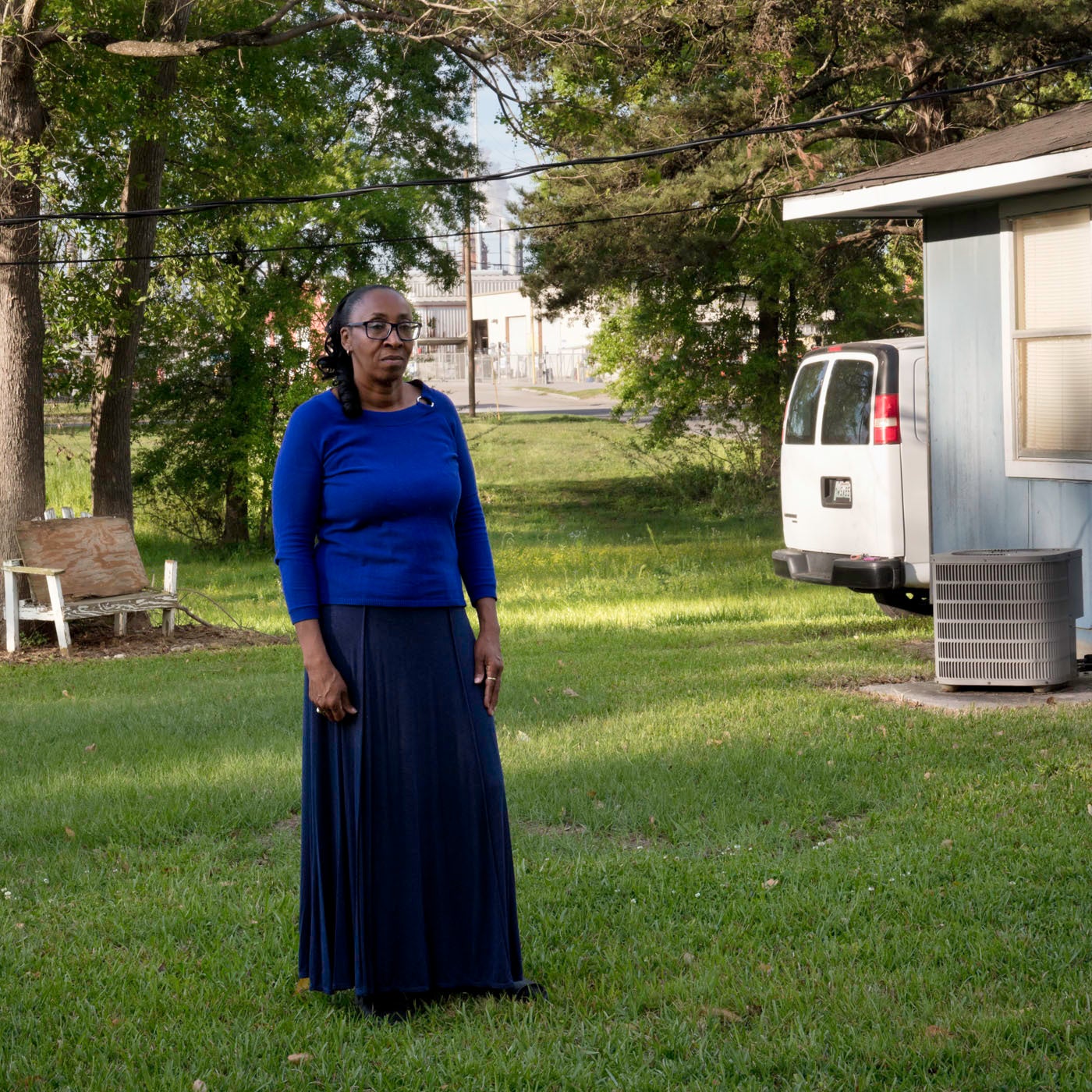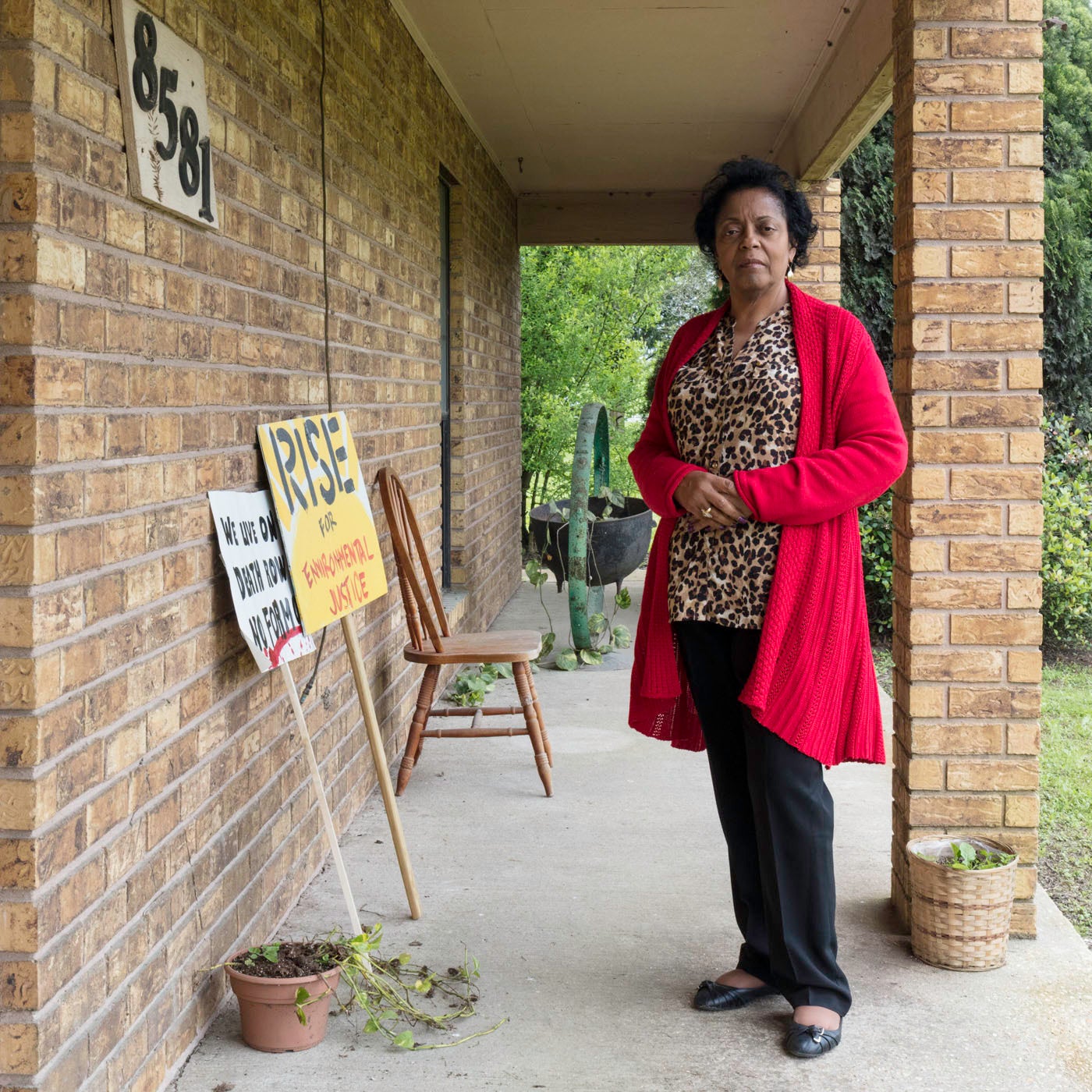“You just get used to the smell, even when it burns your nose,” says Liz Gordon, a Louisiana native who has lived within eyesight of the ExxonMobil Baton Rouge Refinery her whole life. Gordon is one of eight Black women whose lives or health have been impacted by petrochemical facilities in their communities, and who are fighting back through film. Women of Cancer Alley premieres April 18 in New York City, featuring the personal narratives and activism of Louisiana environmental justice advocates shared on-screen, in their own voices.
With the ability to refine over 500,000 barrels of crude oil per day into toxic products like gasoline and diesel, ExxonMobil touts its Baton Rouge Refinery as “one of the largest and most versatile petrochemical hubs in the world,” naming it “the third largest refinery in the United States.” These are distinctions that Gordon says are sources of serious concern in her Baton Rouge community, whose population is over 50 percent African American.
Gordon says she’s often awakened by harsh chemical smells wafting from the nearby ExxonMobil refinery.
“The first thing I do is take pictures on my cell phone,” she says. “And then I call the [Louisiana] Bucket Brigade to report it, because they document these incidents. They are one of the only organizations that has taken any real action to help us.”
The Louisiana Bucket Brigade is a New Orleans-based nonprofit whose mission is to end petrochemical pollution in the state of Louisiana, where 18 refineries statewide refine 3 million barrels of crude oil daily. The Louisiana Bucket Brigade organized the film project. Anne Rolfes, the director, founded the group 19 years ago.

They’ve made me sick, they’ve made all of us sick; my only two brothers got cancer, and my sister in law died of cancer, too
Sharon Lavigne
“In that time we’ve worked with 21 communities up and does the Mississippi River, and [throughout] the state, we estimate we’ve helped about 15,000 families,” says Rolfes, a native of Lafayette who grew up knowing “a lot of wonderful people made wealthy by the oil industry.” After trips to Nigeria where she witnessed the havoc wreaked on various communities stemming from energy giant Shell’s widespread oil production industry there – including toxic oil spills and alleged human rights abuses and killings – Rofles began thinking differently about oil’s effect on the planet and people.
“The experience made me completely change my perspective,” Rolfes told ESSENCE. “When I came back, I became vested in fighting for my own home state’s community.” The Louisiana Bucket Brigade provides advocacy, training and support for Louisianians resisting petrochemical facilities encroaching on their communities.
Rolfes piloted the organization’s film project, Women of Cancer Alley, a “collection of films made by a group of women who live adjacent to chemical plants, tank farms and refineries along the Mississippi River in south Louisiana,” according to its website. Rolfes says the women, all Black, all Louisiana-born, created seven, two-minute films in a workshop led by Berkley, CA-based Storycenter.
“None of the women had ever written a script or made a film before,” says Rolfes. “And that is the most compelling part of this: No one is speaking for these women; they are telling their own stories.”
Sharon Lavigne teaches special education students in the 7th through 12th grades. A lifelong resident of St. James and the daughter of one of the first Black students to integrate St. James High School in the 1960s, Lavigne founded RISE St. James last year to fight environmental injustices her hometown. She participated in the film, Lavigne says, as another method of opposing a potential plastics plant in her community. The $9 billion facility, owned by Taiwanese company Formosa, could be built a mile and half from Lavigne’s home.

“There are already 10 chemical processing plants just within my voting district,” says Lavigne, a mother of six and grandmother of 12. “They’ve made me sick, they’ve made all of us sick; my only two brothers got cancer, and my sister in law died of cancer, too.” She says cancer has taken the lives of at least 20 people she knew personally within the past five years.
The film’s name references communities like Lavigne’s, located along a stretch of the Mississippi River between New Orleans and Baton Rouge, that house more than 150 petrochemical facilities. Community residents living near these facilities, who are overwhelmingly poor and Black, suffer disproportionate rates of lung disease and cancers.
Lavigne, whose home sits on land her family has owned for four generations, encourages African Americans concerned about industrial development or the impact of petrochemicals in their communities to arm themselves with information. And then take action.
“Stay current on [the] development plans in your city, know what facilities are trying to come to your area, and what chemicals will be used there,” she says. “You’ve also got to learn about all these chemicals, how they effect your body, so that you can publicly voice that as a concern, and do your research to back it up.”
On May 30, Lavigne’s nonprofit RISE St. James will host a five-day march from St. John Parish to East Baton Rouge Parish; they hope to raise awareness about petrochemicals and how they can potentially harm the environment and human life.
The Women of Cancer Alley premiers at New York City’s Ford Family Auditorium & Garden on April 18, 6 to 9 p.m., presented by the Louisiana Bucket Brigade and The Center for Constitutional Rights. The women who created and appear in the film will participate in a Q&A session after the screening, which is free (registration required). Significantly, every woman who appears in the film – and women doing the same work in communities nationwide – possesses “tremendous amounts of courage,” says Rolfes.
“What’s remarkable about resistance to the [American] petrochemical industry, is that it’s mostly led by women, and Black women in particular,” says Rolfes. “What these women are taking on, going up against the interests of huge corporations, is dangerous and risky. But they refuse to be silenced.”
